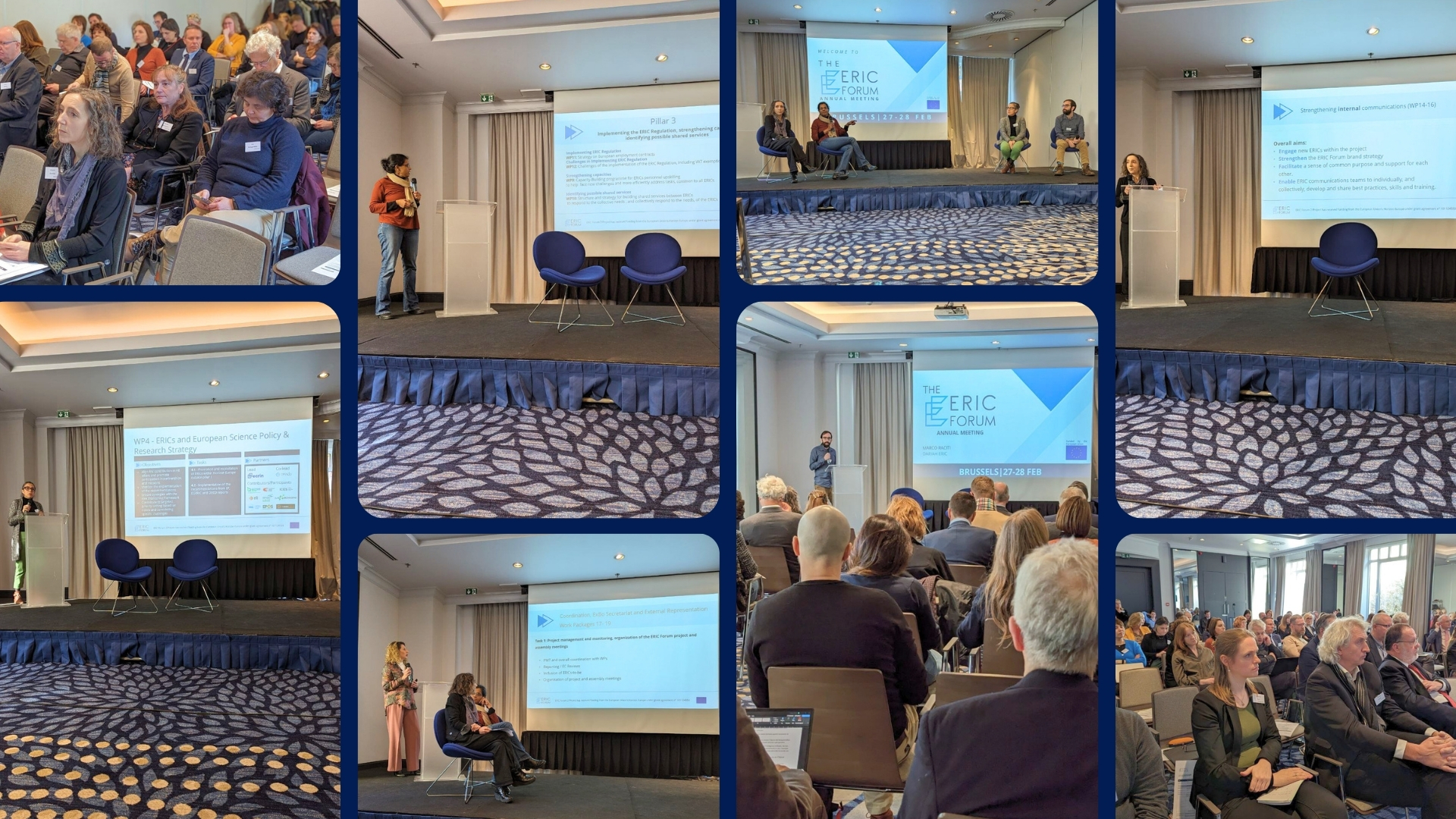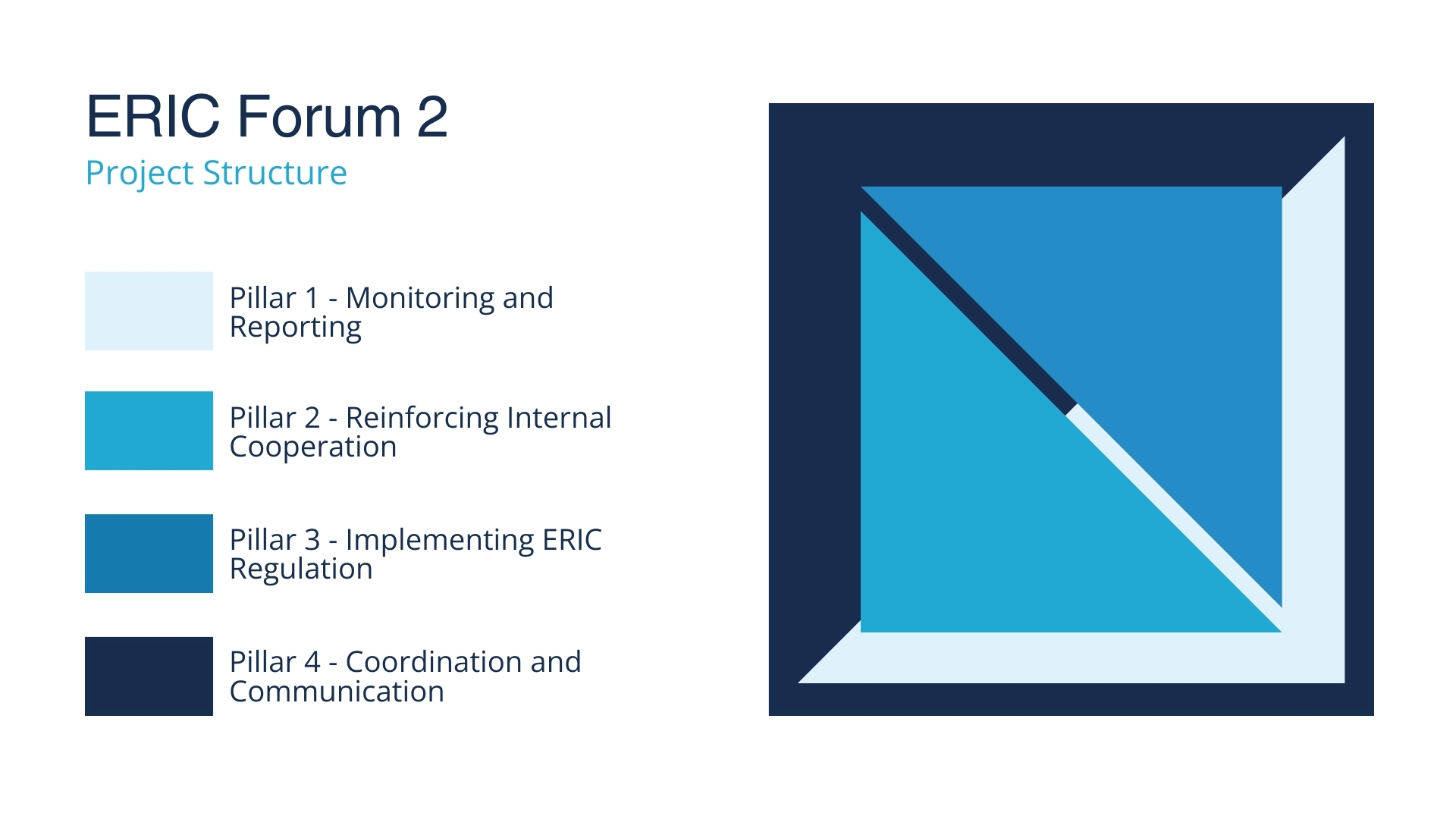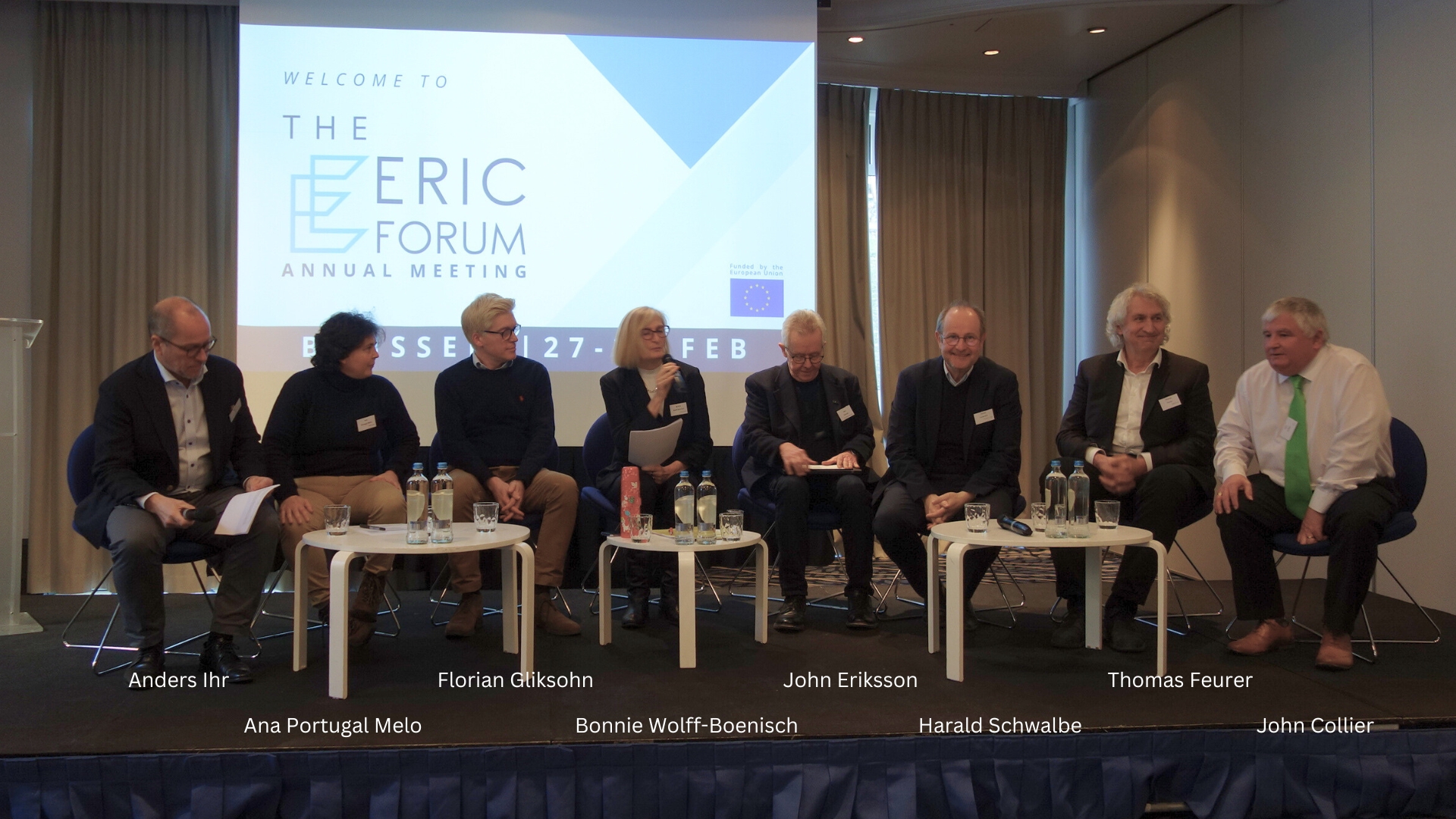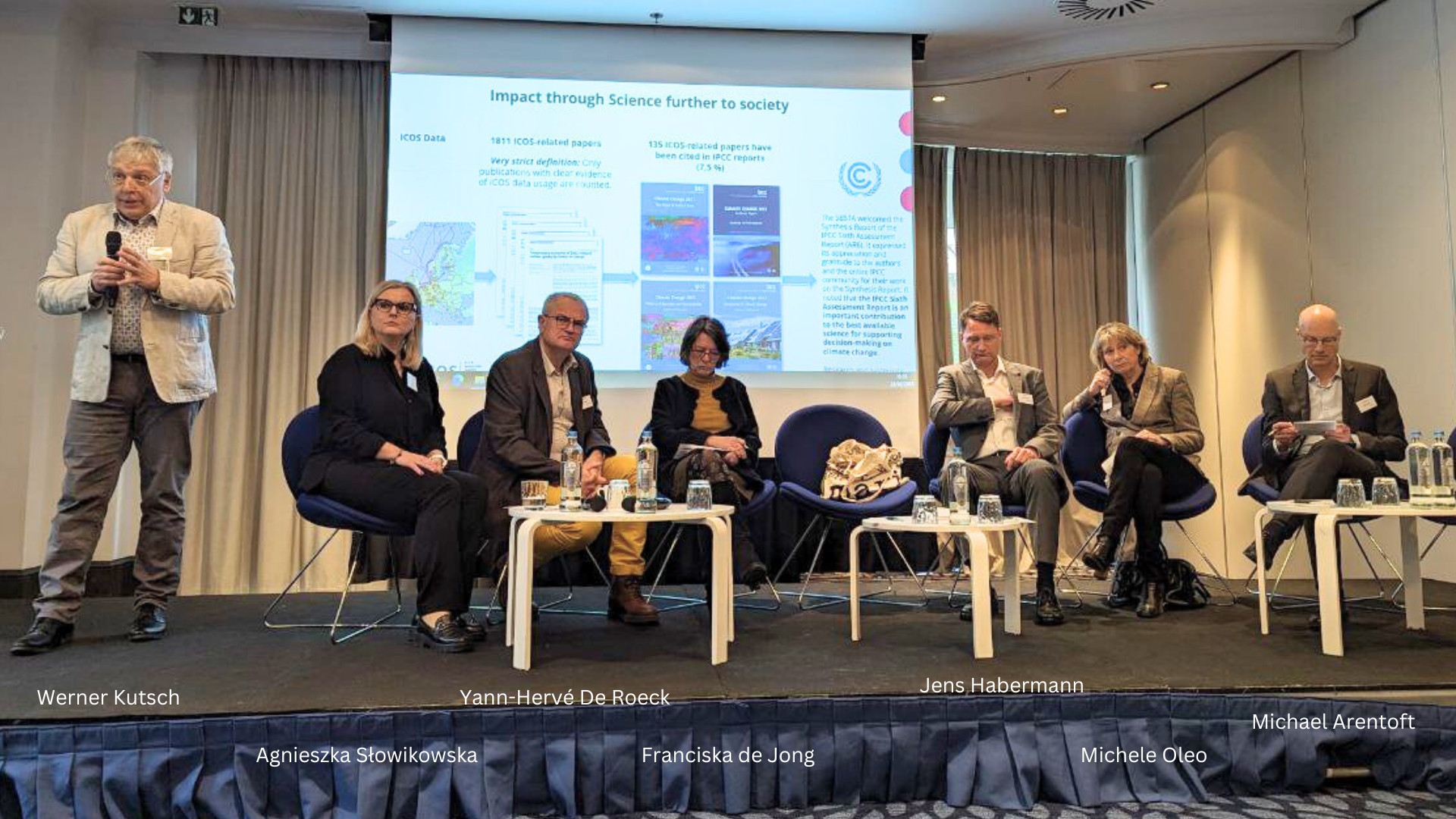
“The ERIC Forum started with just a handful of ERICs. Now look around: there are more than twenty ERICs represented here.”
With these words, Antje Keppler, ERIC Forum Chair, kicked off the Annual Meeting. Thanks to BBMRI-ERIC’s organisation, representatives of 28 ERICs and ERICs-to-be gathered with exponents of the European Commission, the EOSC Association, and ESFRI for a two-day meeting that progressed the Eric Forum Project and the ERIC Forum’s General Assembly.
The first day of the meeting contained an interactive programme where representatives of the EIROForum, ARIE, ERA and DG RI shared the stage with several ERIC Directors.

Photos from the session dedicated to the Second Implementation Project for the ERIC Forum
The Annual Meeting started with a presentation of the Pillars of the second implementation project of the ERIC Forum. Six months after the start of the project, the Pillar leads updated the participants of the meeting on the progress within their respective work packages and tasks and what next steps are to be taken.

In the second part of the day a roundtable took place with the participation of Ana Portugal Melo (Executive Director of MIRRI-ERIC), Prof. Thomas Feurer (EIRO Forum Chair) and Prof. John Collier (ARIE Board of Chairs) together with the ExBo Members of the ERIC Forum: Bonnie Wolff-Boenisch (CESSDA-ERIC), Harald Schwalbe (Instruct-ERIC), Florian Gliksohn (ELI-ERIC), Anders Ihr (ESS-ERIC), and John Eriksson (Euro-BioImaging).

Speakers of the roundtable
They addressed the potential of collaboration since, as Prof. Collier said,
“ERICs are strategic assets for the EU, as are Research Infrastructures in all their forms and other networks.”
The panel evolved around the priorities outlined in the Tenerife Declaration, particularly the long-term sustainability of Research Infrastructures, possible collaboration with their counterparts worldwide and the implementation of Open Science policies, all topics that have been further discussed in the following sessions of the meeting.
The first day of the Annual Meeting ended with a valuable discussion where Anna Panagopoulou, Director of ‘ERA and Innovation’ at the Research and Innovation Directorate General of the European Commission, Martyn Chamberlain (EU Commission), Michael Arentoft (Head of Unit at DG RTD) and Luc Van Dyck (EURO-Argo) discuss the Third Report on the European Research Infrastructure Consortium (ERIC) Regulation adopted by the European Commission in August 2023 and, more generally, the following steps to be taken to further strengthen the impact of ERICs.

Shots from the meeting with EU Commission representatives
In the second day of the Annual Meeting, after the gathering of the project’s General Assembly, two discussion panels occurred. The first one was dedicated to emphasize the success of ERICs, showcasing their stories, projects, and points of excellence which led to a discussion about the challenges of long-term sustainability challenges as well as the position of ERICs in the research value chain and the importance of transnational collaborations. On the stage were the Directors Werner Kutsch (ICOS-ERIC), Agnieszka Słowikowska (JIVE-ERIC), Yann-Hervé De Roeck (EURO-Argo ERIC), Franciska de Jong (CLARIN ERIC), Jens Habermann (BBMRI-ERIC), Jan Hrušák (ESFRI Executive Board Member), together Michael Arentoft, Head of Unit at DG RTD, and Michele Oleo from the Department of Economy, Science and Innovation in Belgium.

Speakers from the ERICs presentation panel
The second panel saw EOSC, EDIC and DG Connect representatives take centre stage to discuss how and where EOSC, EDICs and ERICs are positioned towards one another. Karel Luyben (President of the EOSC Association), Bob Jones (Board of Directors), Ute Gunsenheimer (EOSC Secretariat General) and Tiziana Ferrari (EGI Foundation) were in attendance, together with Michela Vellico (DG RTD) and Bartek Tokarz from (DG Connect) for the European Commission.

Shots from the EOSC meeting
The ERIC Forum Community is grown strong over the last 15 years, providing services far beyond its initial, core business. It has now become a solid asset in the European Research Area. As Dr. Keppler said:
This is the message that the ERIC Forum is sending to its stakeholders in Europe and worldwide.